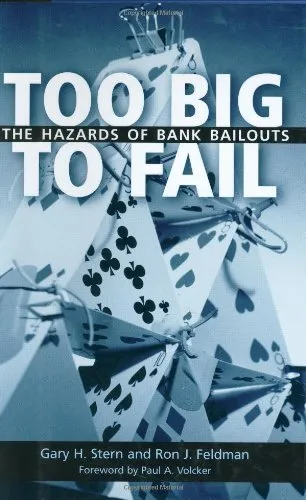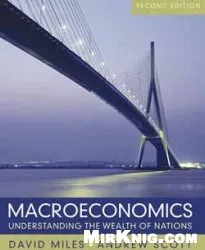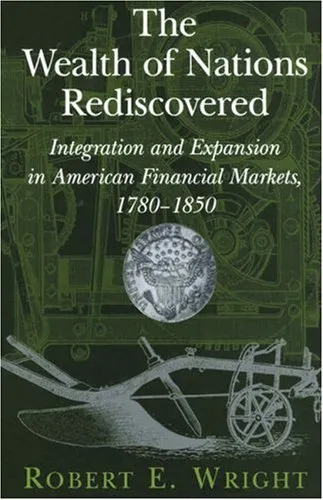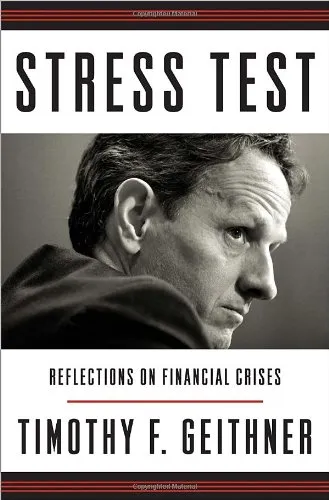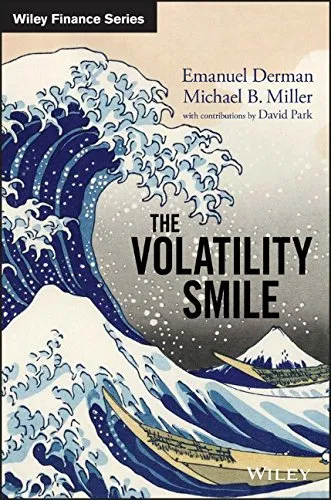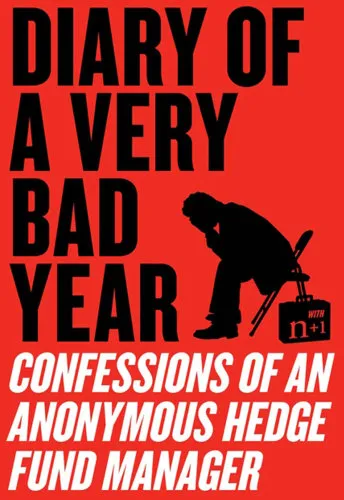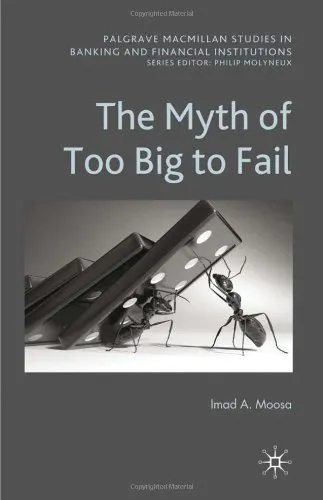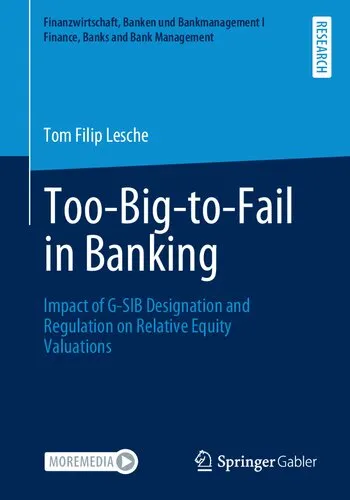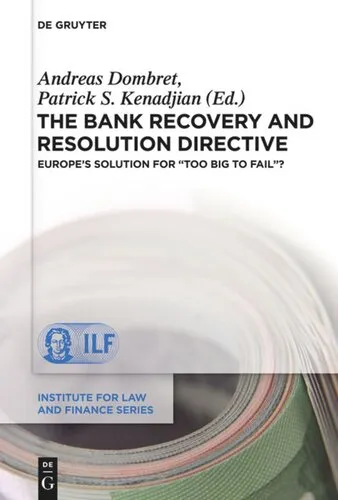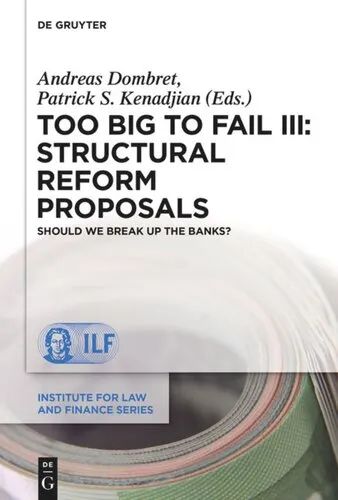Too Big to Fail: The Hazards of Bank Bailouts
4.0
بر اساس نظر کاربران

شما میتونید سوالاتتون در باره کتاب رو از هوش مصنوعیش بعد از ورود بپرسید
هر دانلود یا پرسش از هوش مصنوعی 2 امتیاز لازم دارد، برای بدست آوردن امتیاز رایگان، به صفحه ی راهنمای امتیازات سر بزنید و یک سری کار ارزشمند انجام بدینکتاب های مرتبط:
معرفی کتاب 'Too Big to Fail: The Hazards of Bank Bailouts'
کتاب 'Too Big to Fail: The Hazards of Bank Bailouts' نوشته گری اچ. استرن و رون جی. فلدمن، به بررسی خطرات و پیامدهای منفی نجات بانکهای بزرگ میپردازد. این کتاب بهطور عمیق بر روی مفهوم Too Big to Fail تمرکز دارد و نشان میدهد که چگونه این سیاست میتواند موجب افزایش ریسک و بحرانهای اقتصادی شود.
خلاصهای از کتاب
این کتاب به این ایده میپردازد که بانکها و مؤسسات مالی بهاندازهای بزرگ و پیچیده هستند که شکست آنها میتواند به بحرانهای اقتصادی بزرگ منجر شود. نویسندگان به تحلیل این موضوع میپردازند که چرا دولتها به نجات این موسسات علاقهمند هستند و چگونه این رویکرد میتواند مقدمات بحرانهای بزرگتر را فراهم کند. در این کتاب، تاریخچهای از موارد نجات مالی گذشته ارائه میشود و به تجزیه و تحلیل این پرداخته میشود که چرا این سیاستها اغلب به اصلاحات ساختاری منجر نمیشوند.
نکات کلیدی کتاب
- نجات مالی بانکها میتواند موجب افزایش ریسکپذیری در سیستم مالی شود.
- این سیاستها اغلب نتایج کوتاهمدت دارند و اصلاحات بلندمدت ایجاد نمیکنند.
- راهحلهای سازنده برای کاهش وابستگی به نجاتهای مالی ارائه میشود.
- اهمیت تقویت نظارت و قوانین مالی مورد تأکید قرار میگیرد.
نقلقولهای معروف از کتاب
"خطر این است که وقتی به مؤسسات مالی مجوز نجات داده شود، آنها به برداشتی غلط از امنیت میرسند که موجب افزایش ریسکپذیری میشود."
"ما نمیتوانیم نظارت کافی را نادیده بگیریم زیرا وقتی که بانکها از انگشت ما خارج شوند، عواقب آن برای اقتصاد بسیار خطرناک خواهد بود."
چرا این کتاب مهم است؟
این کتاب برای کسانی که علاقهمند به دنیای مالی و اقتصادی هستند، بسیار مهم است. مطالب آن نه تنها به تحلیل علتها و پیامدهای نجات مؤسسات مالی میپردازد، بلکه راهحلهای عملی و نظریاتی برای بهبود سیستم مالی ارائه میدهد. با توجه به بحرانهای مالی متعدد در دهههای گذشته و تأثیرات عمیق آنها بر اقتصاد جهانی، درک عمیقتری از مشکلات ساختاری در سیستم مالی ارائه میشود. این اثر به اقتصاددانان، سیاستگذاران و دانشجویان اقتصادی کمک میکند تا با دید جدیدی به مسألهی نجات مالی و Too Big to Fail نگاه کنند و به ایجاد اصلاحات پایدار در سیستم مالی جهانی کمک کنند.
Introduction
In the wake of financial crises, there is an often-debated topic that resurfaces with urgency: the "Too Big to Fail" doctrine. Gary H. Stern and Ron J. Feldman approach this critical theme with their incisive book, 'Too Big to Fail: The Hazards of Bank Bailouts', offering a thorough analysis of the implications and challenges associated with financial institutions deemed too critical to the economy to be allowed to fail. This book serves as an important resource for understanding the intricate balance between economic stability and moral hazard posed by government bailouts.
Detailed Summary of the Book
The book delves into the concept of "Too Big to Fail" (TBTF), dissecting the underlying assumptions and consequences of this doctrine. Stern and Feldman contend that TBTF institutions are those that pose a systemic risk to the economy, and thus, are often shielded by government interventions during financial distress. The authors argue that while such measures aim to stabilize markets, they inadvertently encourage excessive risk-taking.
Through a historical lens, the book examines past financial crises, illustrating how the adoption of TBTF policies has often led to costly taxpayer-funded bailouts. Stern and Feldman advocate for robust regulatory frameworks and discuss alternative mechanisms that can reduce the reliance on bailouts. Their critique extends to the interconnectedness of financial institutions, the role of regulators, and the need for accountability in mitigating risks.
Key Takeaways
- The moral hazard created by government bailouts can lead to more unpredictable financial behavior among large institutions.
- The identification and monitoring of systemic risks are crucial in averting potential financial collapses before they occur.
- Regulatory reforms must balance the need for financial innovation with systemic stability.
- Heightened transparency and accountability can deter the reckless behavior encouraged by existing TBTF perceptions.
Famous Quotes from the Book
"The doctrine of 'Too Big to Fail' creates a cycle that is both dangerous and costly—sowing the seeds for future financial calamities."
"Only by addressing the root causes of financial instability can we hope to safeguard our economy from the perils of complacency."
Why This Book Matters
As a cornerstone of financial regulation literature, 'Too Big to Fail: The Hazards of Bank Bailouts' is invaluable for policymakers, economists, and anyone interested in the architecture of modern financial systems. The book provides critical insights into how financial stability can be achieved without compromising the incentives that drive prudent economic behavior. Stern and Feldman's analysis encourages a re-thinking of current policies and highlights the vital role of proactive, rather than reactive, measures in safeguarding economic health.
This work is particularly salient in today's global economy, where financial institutions have become larger and more interconnected than ever, posing unprecedented systemic risks. By shedding light on the implications of TBTF, Stern and Feldman force readers to confront uncomfortable truths about our financial system and the urgent need for reform.
دانلود رایگان مستقیم
شما میتونید سوالاتتون در باره کتاب رو از هوش مصنوعیش بعد از ورود بپرسید
دسترسی به کتابها از طریق پلتفرمهای قانونی و کتابخانههای عمومی نه تنها از حقوق نویسندگان و ناشران حمایت میکند، بلکه به پایداری فرهنگ کتابخوانی نیز کمک میرساند. پیش از دانلود، لحظهای به بررسی این گزینهها فکر کنید.
این کتاب رو در پلتفرم های دیگه ببینید
WorldCat به شما کمک میکنه تا کتاب ها رو در کتابخانه های سراسر دنیا پیدا کنید
امتیازها، نظرات تخصصی و صحبت ها درباره کتاب را در Goodreads ببینید
کتابهای کمیاب یا دست دوم را در AbeBooks پیدا کنید و بخرید
1332
بازدید4.0
امتیاز0
نظر98%
رضایتنظرات:
4.0
بر اساس 0 نظر کاربران
Questions & Answers
Ask questions about this book or help others by answering
No questions yet. Be the first to ask!
